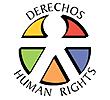
The Human Rights Actions Network
www.derechos.org/human- rights/actions/
ACTION REQUEST
Violence Against Women
Case IRN 281097
The International Secretariat of the OMCT requests your URGENT
intervention in the following situation in Iran.
Brief description of the situation :
The International Secretariat has been informed, by reliable sources,
of concerns over the physical and psychological integrity of Zoleykhah
Kadkhoda from Kanirash village in Bukan.
According to the information received, on 11 August 1997, Zoleykhah
Kadkhoda was arrested, charged with engaging in sexual relations
outside marriage, and immediately condemned to death by decree of the
religious magistrate Hakem Sha'r, Furthermore, the Friday Prayer
Leader of Ali Abad village, a man named Khalifzadeh was also involved
in condemning Kadkhoda to death.
On the same day the local Pasdaran,Basijis and other Hezbollahis
("civilian" supporters of the Islamic regime) buried her from waist
down in a ditch and began stoning her. One such supporter has been
identified as Sharifaghleh. The stoning prompted such reaction among
the village inhabitants, that they were forced to stop the stoning and
immediately take her body to the Bukan hospital. Zoleykhah Kadkhoda
head and face were seriously wounded.
As the news of the stoning spread, it incited such disapproval among
the people of the city and villages of Bukan that local
representatives and the religious magistrate were forced to promise to
give Zoleykhah Kadkhoda amnesty if she survives. However, according to
the latest reports, there is concern that despite the reports of her
amnesty, Zoleykhah Kadkhoda might be sentenced to a second stoning.
OMCT notes that Iran is State party to Covenant on Civil and Political
Rights. Article 7 states that "No one shall be subjected to torture or
to cruel, inhuman or degrading treatment or punishment."
The Special Rapporteur on the question of Torture has emphasised in
his last report to Commission on Human Rights that torture and cruel
inhuman degrading treatment or punishment extends to corporal
punishment such as stoning to death, flogging and amputation. He
furthermore notes in the same report that The State must be considered
responsible for the consequences of sentences of corporal punishment
by informal or quasi-official agencies, such ad hoc village tribunals
or religious courts, who are pronouncing which appear to be extrinsic
to the State's constitutional criminal justice system , if they are
carried out with its authorisation, consent or acquiescence
(E/CN.4/1997/7, Para 5).
According to several reports, a number of ad hoc courts emerged in
Iran shortly after the Islamic revolution to mete out immediate
punishment to the offenders of Islamic mores. A 1986 law made it
possible to appoint judges with little formal education, whose
experience lay in the structures of the post-revolutionary government,
and who are more politically radical and religious activists.
Furthermore, religious judges holding the status of of Mojtahed
(religious scholar ) who occupy the vast majority of judicial
positions in penal courts cling to their authority to issue judgements
on the basis of their own religious opinions or Fatwa. In addition,
the Friday Prayer Leaders or Imam Jom-e have enormous power, in
provincial cities often more than the government appointed judicial
officials. A law adopted in 1992 gives to these irregular quasi
governmental forces full power to arrest and detain suspects. The
completely unregulated status of the Basijis provides no redress
against arbitrary detention.
Action requested
Write to the Iranian authorities urging them to:
i. guarantee the physical and psychological integrity of Zoleykhah
Kadkhoda and provide access to sufficient medical care and guarantee
that Zoleykhah Kadkhoda is granted total amnesty ;
ii. take all necessary measures to bring an end to the practice of
corporal punishment sentenced by religious magistrates or any other
quasi-official or official agencies;
iii. guarantee an impartial and exhaustive enquiry into these facts,
identify those responsible, bring them before a civil competent and
impartial tribunal and apply the penal, civil and/or administrative
sanctions provided by law;
iv. ensure in all circumstances the full respect of human rights and
fundamental freedoms in accordance with national and international
standards.
Addresses:
Leader of the Islamic Republic His Excellency Mohammad Khatami
Khamanei, The Presidency. Palestine Ave. Azerbaijan Intersection.
Tehran, Islamic republic of Iran. Phone: Iran 01198216161. Telegram:
Ayatollah Khamenei, Tehran Iran Telex: 214231 MITI IR; 213113 PRIM IR.
His Excellency Ayatollah Sayed Ali, The Presidency Palestine Ave.
Azerbaijan Intersection. Tehran, Islamic republic of Iran. Phone: Iran
01198216161. Telegram: President Rafsanjani, Tehran Iran Telex: 214231
MITI IR; 213113 PRIM IR.
His Excellency Abdollah Nouri, Minister of Interior, Ministry of
Interior, Dr. Fatemi Avenue, Tehran, Islamic Republic of Iran.
His Excellency Kamal Kharazi, Minister of Foreign Affairs, Sheikh
Abdolmajid Keshk-e Mesri Avenue, Tehran, Islamic Republic of Iran,
Fax: 98-21 674 790
Geneva, 28 October 1997
